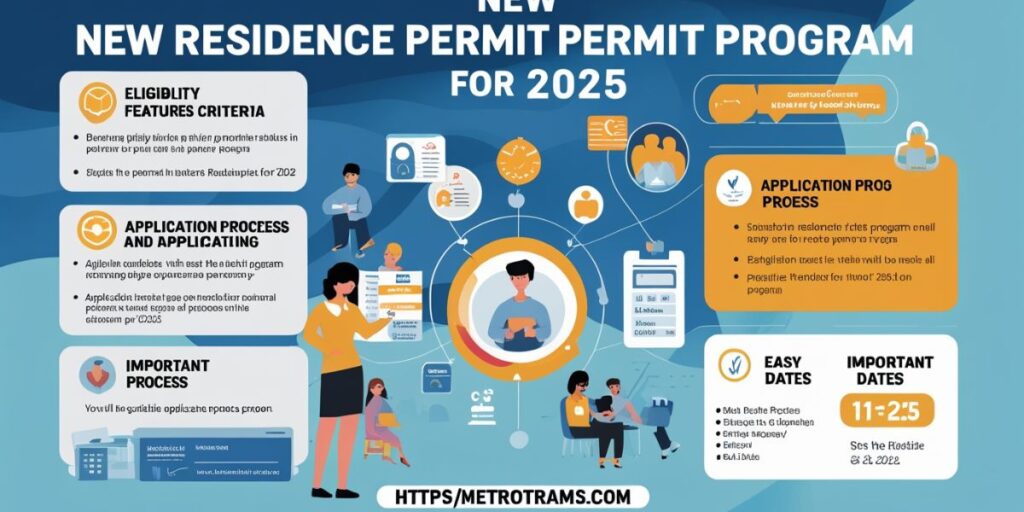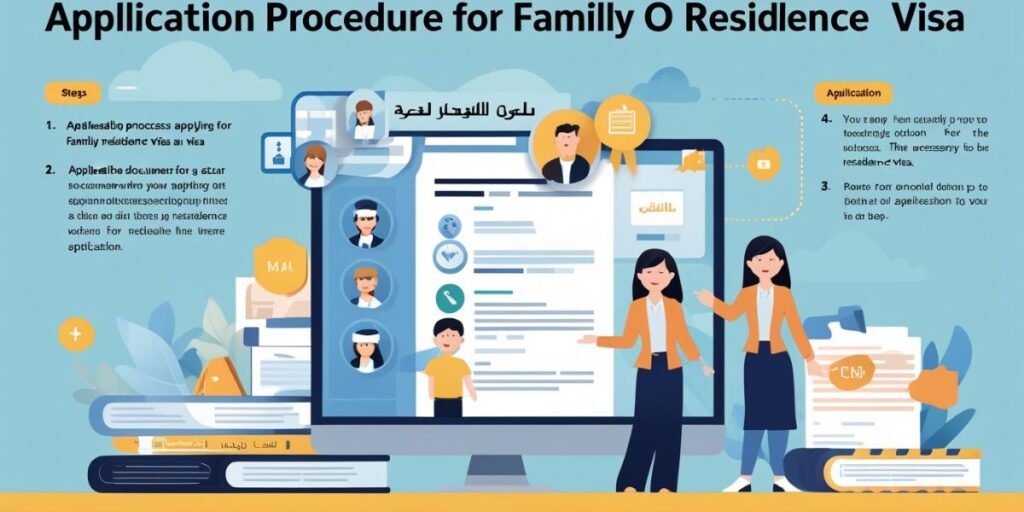Obtaining a residence permit (RP) in Qatar is essential for expatriates aiming to build their lives in the country. The Ministry of Interior (MOI) manages this process, ensuring compliance with local regulations. Understanding these requirements is crucial for a smooth transition into Qatar’s vibrant community.
This guide outlines the steps, documentation, and eligibility criteria for a successful application. By detailing each phase, it equips potential residents to navigate the process confidently. Staying informed about the latest regulations in 2025 helps expatriates embrace opportunities in Qatar’s multicultural environment.
Requirements for Residency in Qatar
To obtain residency in Qatar, applicants must fulfill specific criteria established by the Ministry of Interior. Meeting these requirements is essential for a smooth application process. Here are the key requirements:
- Minimum Salary: Generally, a salary of QR 10,000–15,000 is required.
- Valid Passport: Passport must be valid for at least six months.
- Biometric Registration: Completion of biometric data collection is mandatory.
- Proof of Accommodation: Documentation showing sustainable housing.
- Clean Legal Record: A clear background check confirming no criminal history.
Eligibility for Permanent Residency for Expats
Permanent residency in Qatar is available for some expats who meet specific criteria. Living in Qatar for several years is essential for qualification. Expatriates must show they contribute to the economy and have stable employment.
Additionally, investors can qualify through investment opportunities. A good income and a clean legal record are important. This means having no criminal history. Meeting these requirements allows expats to enjoy a better life in Qatar.
Permanent Residency Options for Foreign Investors
Foreign investors have several options to obtain permanent residency in Qatar. These options encourage investment and support economic growth. Here’s a concise table summarizing the key options:
| Option | Description |
| Real Estate Investment | Invest QR 2 million in property. |
| Business Investment | Start a business with QR 1 million. |
| Government Bonds | Invest QR 2 million in Qatari bonds. |
| Job Creation | Create jobs for Qatari citizens. |
These pathways help foreign investors gain permanent residency while benefiting the Qatari economy.
New Residence Permit Program for 2025

Qatar is introducing a New Residence Permit Program in 2025 to streamline the application process for expatriates. This initiative aims to make obtaining residency easier and more efficient. Here are the key features:
- Simplified Application Process: The new program reduces paperwork and simplifies submission.
- Faster Processing Times: Applications will be processed more quickly to minimize waiting periods.
- Online Services: Enhanced online platforms will allow for easier submission and tracking.
- Increased Transparency: Clear guidelines and updates will be provided throughout the application process.
- Expanded Eligibility: More categories for residency will be included, benefiting a wider range of applicants.
Renewal Process for Qatar Residence Permit
The renewal process for the Qatar Residence Permit is essential for expatriates to maintain their legal status. Understanding the steps involved can help ensure a smooth and timely renewal. Below is a table outlining the key steps:
| Step | Description |
| Gather Documents | Collect passport, employment contract, and medical certificate. |
| Submit Application | Apply online or at the Ministry of Interior. |
| Pay Fees | Pay the renewal fees. |
| Biometric Registration | Complete biometric data collection. |
| Receive Permit | Wait for processing and get the renewed permit. |
Complete Guide to Qatar Family Residence Visa
The Qatar Family Residence Visa enables expatriates to sponsor their family members to live in the country. This visa fosters family unity and allows dependents to join expatriates, enhancing their living experience in Qatar.
To qualify for the visa, expatriates must hold a valid residence permit and meet specific salary requirements. They need to provide proof of relationship, such as marriage and birth certificates. The application process involves submitting the necessary documents to the Ministry of Interior, along with applicable fees.
Overview of the Qatar Family Residence Visa
- Allows expatriates to sponsor family members.
- Promotes family unity by enabling dependents to live in Qatar.
- Eligible family members include spouses and children.
- Tied to the expatriate’s valid residence permit.
- Approved members can access education and healthcare.
Key Requirements for Family Residence Visa
| Requirement | Description |
| Valid Residence Permit | Must hold a valid Qatar residence permit. |
| Minimum Salary | Typically requires a minimum salary of QR 10,000. |
| Proof of Relationship | Submit marriage and birth certificates. |
| Health Insurance | Must provide valid health insurance coverage. |
| Application Fees | Payment of applicable fees is required. |
Minimum Salary Criteria for Family Sponsorship
- Salary Threshold: Typically around QR 10,000.
- Job Type Variation: Criteria may differ by sector.
- Full-Time Employment: Must be employed full-time.
- Income Proof: Documented via pay slips or bank statements.
- Dependents Count: Higher salary may be needed for more dependents.
Application Procedure for Family Residence Visa

The application procedure for the Qatar Family Residence Visa involves several steps to ensure proper documentation and eligibility. It is essential for expatriates to follow these steps carefully to facilitate a smooth application process for their family members.
Online and Direct Application Methods
Expatriates can apply for the Family Residence Visa through online portals or by visiting designated government offices. The online method offers convenience, while direct application allows for face-to-face assistance from officials.
Using Metrash for Family Residence Visa
Metrash is a mobile application that simplifies the visa application process for expatriates in Qatar. Users can submit documents, track application status, and receive notifications, making it a user-friendly option for managing family sponsorship.
Steps to Take if Your Family Visa is Rejected
If your Family Residence Visa application is rejected, it’s important to take specific steps to address the situation. Following these steps can help you understand the reasons for denial and improve your chances of a successful reapplication.
- Review Reasons: Understand the specific reasons for denial.
- Gather Documents: Collect any missing or additional required documents.
- Consult Authorities: Contact the relevant department for clarification.
- Correct and Resubmit: Make necessary changes and submit a new application.
- Seek Legal Advice: Consider consulting an immigration lawyer if needed.
- Monitor Status: Track the new application and respond promptly to requests.
Entry Process for Family Members
The entry process for family members under the Qatar Family Residence Visa includes several essential steps for a smooth arrival. Understanding these steps helps expatriates prepare their families for settling in Qatar.
| Step | Description |
| Visa Approval | Ensure the Family Residence Visa is approved. |
| Document Preparation | Gather necessary documents (passports, photos). |
| Travel Arrangements | Book flights to Qatar for family members. |
| Arrival in Qatar | Present visas and documents at immigration. |
| Health Check | Complete required health screenings. |
| Collect Residence Permit | Apply for and obtain residence permits. |
Medical Test Requirements for Residence Visa
All family members applying for a Residence Visa must undergo a medical examination that typically includes tests for infectious diseases such as HIV, Hepatitis B and C, and Tuberculosis. The medical test must be conducted at an approved health center in Qatar, and results are usually required before the visa can be issued.
Necessary Documents for Medical Testing
To undergo the medical test, applicants must present certain documents, including a valid passport, a copy of the visa application, and passport-sized photographs. Additionally, medical forms provided by the health center must be filled out beforehand. Having all documents ready ensures a smooth testing process.
Medical Test Fees for Family Visa Applicants
The fees for medical tests can vary depending on the health center and the specific tests required. Generally, applicants should expect to pay a fee that covers the entire examination process, which may include multiple tests. It’s advisable to check with the chosen medical facility for the exact costs involved.
Checking Medical Test Reports
Once the medical tests are completed, applicants can check their reports online or through the health center where the tests were conducted. Some facilities may provide a physical copy of the results. It’s essential to review the reports carefully, as any health issues could affect the visa application process.
Fingerprinting Process for Family Visa Applicants
The fingerprinting process is a vital step for family visa applicants in Qatar, ensuring proper identification and security clearance.
| Step | Description |
| Appointment Scheduling | Schedule an appointment at the designated center. |
| Document Verification | Present required documents such as passports. |
| Fingerprint Collection | Provide fingerprints using biometric scanning. |
| Submission of Data | Submit fingerprints to authorities for processing. |
| Receipt Issuance | Obtain a receipt confirming completion of the process. |
Application for Family Residence Permit Card
After the visa is approved, applicants must apply for a Family Residence Permit Card. This card is essential for legal residency in Qatar and must be obtained within a specified time frame after arrival. The application requires submitting necessary documents, including the approved visa and medical test results.
Fees Associated with the Residence Permit Card
- Fees vary based on applicant age and permit duration.
- Additional charges may apply for processing services.
- Check official sources for the latest fee structure.
Importance of National Address Registration
National Address Registration is crucial for expatriates in Qatar as it ensures proper identification and access to essential services. This registration is necessary for residency permits and facilitates communication with government agencies.
| Benefit | Description |
| Legal Requirement | Mandatory for residency permits and visa applications. |
| Access to Services | Enables access to essential services like healthcare and education. |
| Emergency Response | Helps authorities locate individuals during emergencies. |
| Community Engagement | Supports local governance and community planning. |
Work Permits for Spouses and Children
Work permits for spouses and children of expatriates in Qatar provide an opportunity for family members to join the workforce. Understanding the application process and requirements is essential for families looking to enhance their livelihood while residing in the country.
- Spouses and children of expatriates can apply for work permits under certain conditions.
- The primary visa holder must sponsor their work permit application.
- Work permits allow family members to seek employment in various sectors, enhancing family stability.
Steps to Obtain a Qatar Residence Permit
To obtain a Qatar Residence Permit, applicants must follow a series of steps, beginning with securing a job and sponsorship from a Qatari employer. The process includes submitting necessary documents, undergoing medical examinations, and completing the fingerprinting process, followed by the application submission to the relevant authorities for approval.
Eligibility Criteria for Different Applicants
The eligibility criteria for obtaining a residence permit in Qatar vary depending on the applicant’s status, such as workers, family members, students, and property owners. Understanding these criteria is crucial for ensuring compliance with local regulations.
Requirements for Workers
To be eligible for a residence permit, workers must have a valid employment contract with a Qatari employer who will act as their sponsor. They are required to provide necessary documents such as a copy of the employment contract, a valid passport, and a medical fitness certificate. Additionally, workers must meet specific skill and qualification standards as dictated by their job role.
Requirements for Family Members
Family members, including spouses and children of expatriates, can apply for a residence permit under the sponsorship of the primary visa holder. They must submit documents such as marriage certificates and birth certificates, along with health insurance coverage. It’s important for family members to maintain valid residency status to ensure their eligibility.
Requirements for Students
Students wishing to obtain a residence permit must be enrolled in an accredited educational institution in Qatar. They need to provide proof of enrollment, a valid passport, and sometimes a letter of sponsorship from their parents or guardians. Additional documents may include health insurance and a certificate of good conduct.
Requirements for Property Owners
Foreigners who own property in Qatar can apply for a residence permit based on their investment. They must provide proof of property ownership, such as a title deed, along with a valid passport and a certificate of good conduct. This type of permit often allows for longer-term residency and may come with specific property value thresholds.
Comprehensive Steps to Secure a Residence Permit
| Step | Description |
| 1. Employment Offer | Secure a job offer from a Qatari employer. |
| 2. Document Preparation | Gather necessary documents like your passport. |
| 3. Medical Examination | Undergo a medical check-up at an approved facility. |
| 4. Fingerprinting | Complete fingerprinting for biometric data. |
| 5. Application Submission | Submit the application to the Ministry of Interior. |
| 6. Approval Notification | Wait for approval from the authorities. |
| 7. Residence Permit Issuance | Collect your residence permit card. |
Documentation Needed for Qatar Residence Permit
- Valid passport (minimum six months’ validity).
- Employment contract or sponsorship letter.
- Medical fitness certificate.
- Recent passport-sized photographs.
- Proof of accommodation (rental agreement).
- Birth or marriage certificates for family members.
- Certificate of good conduct.
Fees for Obtaining a Qatar Residence Permit
| Type | Fee Description |
| Initial Application Fee | Charge for processing the application. |
| Medical Examination Fee | Cost for the mandatory medical check-up. |
| Fingerprinting Fee | Fee for biometric fingerprinting. |
| Residence Permit Issuance Fee | Charge for the permit card issuance. |
| Renewal Fee | Fee for renewing the residence permit. |
| Additional Charges | Possible extra fees for expedited services. |
Rights and Responsibilities of Permit Holders
| Rights | Responsibilities |
| Legal Residency | Comply with Qatar’s laws and regulations. |
| Access to Services | Maintain valid residency status. |
| Employment Opportunities | Renew permits and update personal information. |
| Family Sponsorship | Ensure family members have valid permits. |
| Healthcare Access | Have health insurance coverage. |
Benefits of Holding a Residence Permit in Qatar
- Legal Residency: Provides legal status to live and work in Qatar.
- Access to Services: Allows access to healthcare, education, and other essential services.
- Employment Opportunities: Enables the holder and family members to seek employment.
- Family Sponsorship: Permits the sponsorship of family members for residency.
- Property Ownership: Allows for property investment under certain conditions.
- Travel Flexibility: Facilitates easier travel in and out of the country.
Validity and Renewal of the Residence Permit
A Qatar Residence Permit is typically valid for one to five years, depending on the type and sponsor. Renewal is necessary before expiration to maintain legal residency and involves submitting an application along with required documents, such as a medical certificate and updated personal information. Timely renewal ensures continued access to services and avoids potential legal issues.
Consequences of Violating Residence Permit Regulations
Violating residence permit regulations in Qatar can lead to severe consequences, including fines, deportation, and bans on re-entry. Common infractions like overstaying or unauthorized work are closely monitored, and those caught may face significant penalties.
Employers can also be penalized for not adhering to sponsorship obligations, complicating the situation for both parties. Such violations can damage an individual’s record, affecting future residency and visa applications. Therefore, it’s crucial for permit holders to understand and comply with local regulations to avoid serious repercussions.
Conclusion
Obtaining residency in Qatar is essential for expatriates aiming to build their lives in this dynamic nation. This guide outlines key processes, including eligibility criteria and necessary documentation, ensuring individuals are well-equipped for their journey and ready to seize personal and professional opportunities.
Additionally, understanding the rights and responsibilities of residency is crucial for avoiding pitfalls and enjoying the benefits, such as access to healthcare and employment. Ultimately, securing residency is not just about legal status; it represents an opportunity to embrace new experiences and thrive within a vibrant community.
Frequently Ask Questions
What is the process to obtain residency in Qatar?
The process involves securing a job offer, obtaining a work visa, and then applying for a residency permit through the Ministry of Interior.
What documents are required for residency application?
Required documents typically include a valid passport, employment contract, medical examination results, and completed application forms.
How long does the residency application take?
The processing time can vary but generally takes between 1 to 3 months, depending on the completeness of your application.
Can family members be included in the residency application?
Yes, expatriates can sponsor family members for residency, provided they meet certain income and housing requirements.
What are the fees associated with obtaining residency?
Fees can vary based on the type of residency and applications but generally include processing fees and medical examination costs.
What are the rights of residency holders in Qatar?
Residency holders have access to healthcare, the ability to work, and the right to sponsor family members, among other benefits.
